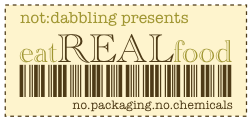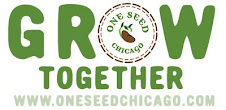So many of us have switched our focus to local-- better for the economy, the planet, and our health. And as we change the focus to local rather than strictly certified organic, the food powers will surely start to take note, will want to make money off of us, and will pressure for this label to be regulated as well, again duping uninformed and unsuspecting consumers into thinking they're getting something they are not.
I can see how this will happen-- "local" will be defined as a larger area than a strict locavore might want. Or it will be defined by distribution points, or by where it gets labeled, rather than by where it gets grown. Or by where it gets grown rather than by actual miles traveled from the source to your table (so if it's grown in Illinois, but packed in Mexico, how local is it?). Having no trust in the regulatory process whatsoever where food is concerned, I can see this coming.
So I think we need a new nomenclature, one that each consumer informs herself about. I think we need to start eating "ethical" food:
- pastured meat and dairy
- food grown or raised using organic and sustainable principals, rather than just having the increasingly meaningless certified organic label slapped on it
- grown no more than a days' drive out and back (4 hour radius; this is the definition used by Polyface Farms)
- grown yourself or by a neighbor, in a backyard or a community garden
- sold direct either farm to consumer or through a reliable, local middleman (in other words NOT Whole Foods)
- unprocessed, meaning sold whole or packed without use of chemically manufactured preservatives









No comments:
Post a Comment